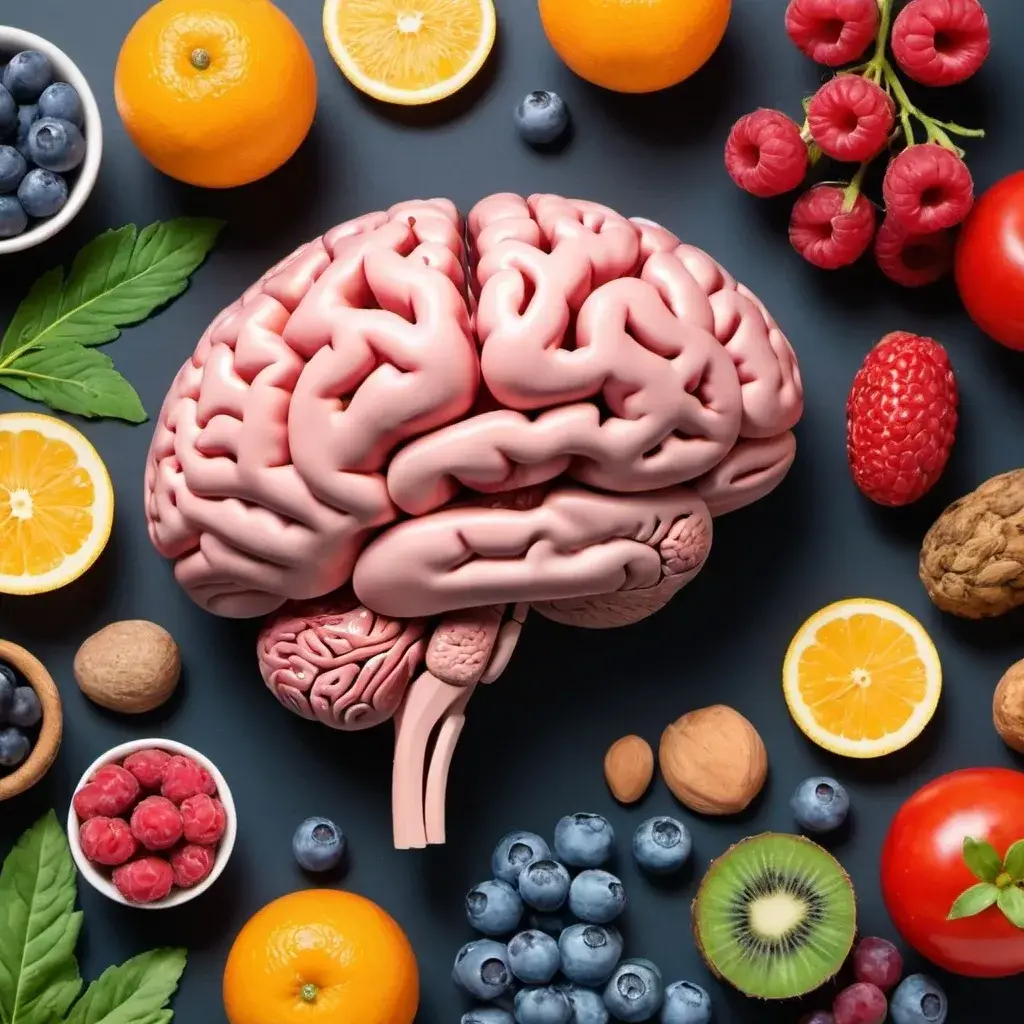Table of Contents
The Crucial Role of Nutrition in Cognitive Function and Mental Well-being
Maintaining cognitive function and mental well-being is essential at every stage of life, and nutrition plays a pivotal role in this process. Research highlights the significant role of nutrition in congivitve function and the impact of various nutrients on brain health. The importance of a balanced diet and targeted supplementation with nootropics and brain healthy vitamins cannot be understated.
Key Nutrients for Brain Health
Several nutrients have demonstrated potential benefits for brain health, including:
- Omega-3 Fatty Acids (EPA and DHA): Known for their neuroprotective effects, omega-3 fatty acids have been linked to improvements in blood biomarkers and brain health, particularly in individuals with lower baseline levels or those with neuropsychiatric conditions (Derbyshire, 2018). Recent studies show that higher omega-3 levels reduce the risk of dementia by 20% and improve cognitive functions such as memory and focus (Witte et al., 2023). Structured forms of EPA and DHA have shown enhanced bioavailability and significant cognitive benefits (Caimari et al., 2022).
- Vitamin E: This antioxidant helps protect brain cells from oxidative stress, which is crucial in mitigating cognitive decline and supporting overall brain function.
- Magnesium: Essential for numerous biochemical reactions in the brain, magnesium aids in maintaining normal nerve and muscle function, regulating blood sugar levels, and supporting a healthy immune system. Research indicates that magnesium supplementation can improve sleep quality, reduce anxiety, and enhance cognitive function.
- Folic Acid: This B-vitamin is vital for brain function and emotional well-being. It plays a role in the production of DNA and RNA, the body’s genetic material, and is particularly important during periods of rapid growth such as pregnancy and infancy.
Benefits of Nutritional Supplementation
Nutritional supplementation can be an effective strategy for supporting cognitive function and preventing neurodegeneration, particularly in older adults. Omega-3 fatty acid supplementation, for instance, has shown neuroprotective effects and improvements in blood biomarkers. These benefits are especially pronounced in individuals with lower baseline levels of these nutrients or those suffering from neuropsychiatric conditions (Derbyshire, 2018).
However, the effectiveness of supplements can vary based on factors such as dosage, bioavailability, and individual differences (Fekete et al., 2023). Therefore, it is essential to consider these factors when incorporating supplements into one’s diet.
The Growing Importance of Nutrition for an Aging Population
As global populations age and healthcare costs rise, maintaining brain health becomes increasingly critical. A balanced diet rich in essential nutrients, coupled with targeted supplementation when necessary, offers a valuable strategy for preserving cognitive function across the lifespan (Muscaritoli, 2021).
Incorporating these nutrients into daily life can help mitigate stress, anxiety, sleep disorders, and cognitive impairment (Muscaritoli, 2021). By prioritizing nutrition, individuals can enhance their mental well-being and cognitive health, ultimately leading to a higher quality of life as they age.
Conclusion
In summary, the role of nutrition in cognitive function and mental well-being is essential for maintaining brain health throughout life. By understanding the benefits of key nutrients and the potential of targeted supplementation, individuals can take proactive steps to support their brain health. As we continue to navigate the challenges of an aging population, embracing a nutrition-focused approach will be essential for promoting cognitive longevity and overall well-being.
By focusing on these key nutrients, individuals can take meaningful steps toward protecting their cognitive health and overall mental well-being.
References:
Businaro, R. (2022).
Muscaritoli, M. (2021). Food supplements to complement brain functioning: the benefits of a combination of magnesium, folic acid, omega-3 fatty acids, and vitamin E.
Derbyshire, E. (2018). Micronutrient intake and the risk of cognitive decline
Witte, V., et al. (2023). Food for the Brain on Omega-3 Fats & Cognitive Decline
Caimari, A., et al. (2022). MDPI on Structured Long-Chain Omega-3 Fatty Acids






